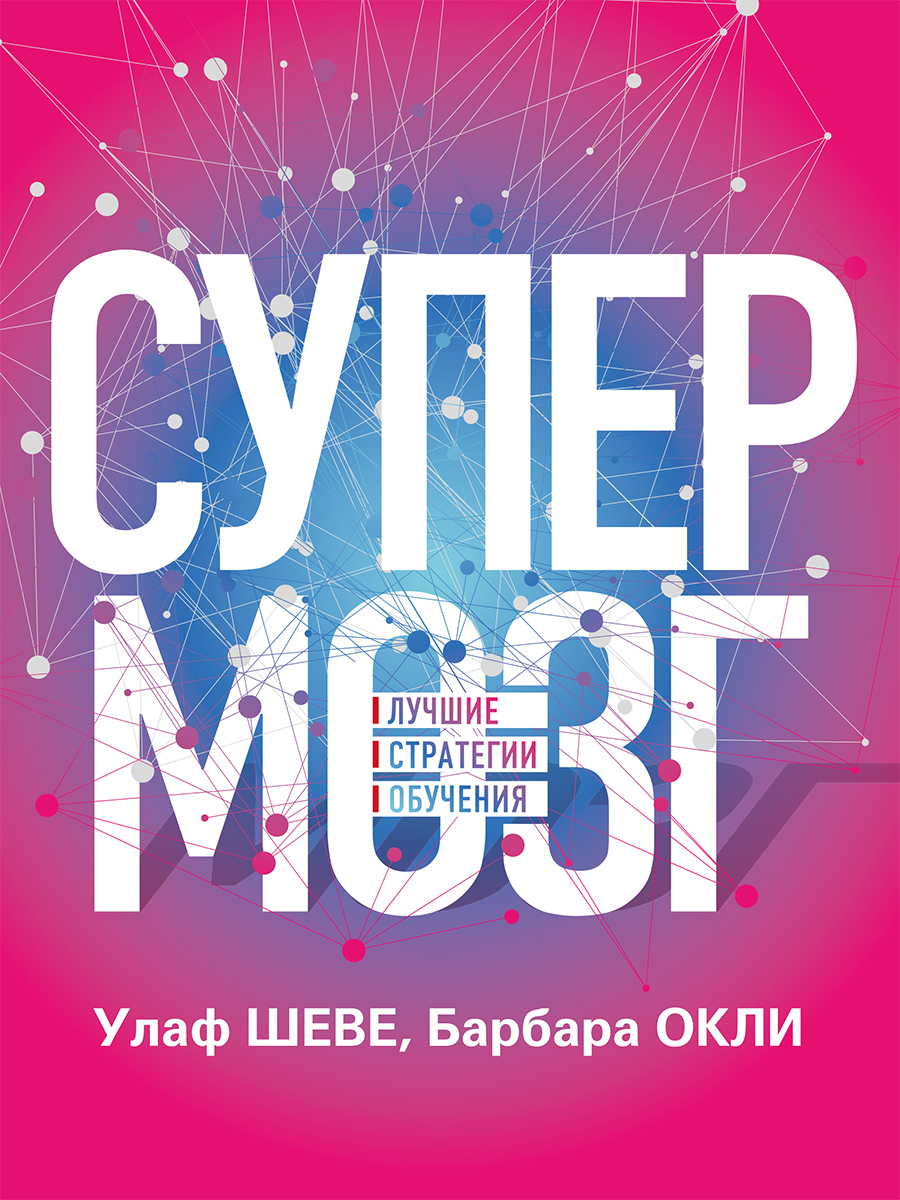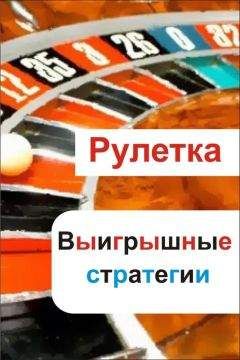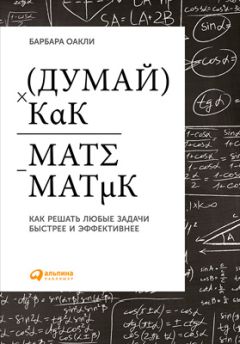Супермозг. Лучшие стратегии обучения - Барбара Оакли

Помощь проекту
Супермозг. Лучшие стратегии обучения читать книгу онлайн
Chang, Yukai et al. «The effects of acute exercise on cognitive performance: a meta-analysis.» Brain Res 1453 (2012): 87–101.
Chiesa, Alberto et al. «Does mindfulness training improve cognitive abilities? A systematic review of neuropsychological findings.» Clinical Psychology Review 31, no. 3 (2011): 449–64.
Christopher, Eddie A. & Jill T. Shelton. «Individual differences in working memory predict the effect of music on student performance.» Journal of Applied Research in Memory and Cognition 6, no. 2 (2017): 167–173.
Cousins, James N. et al. «Does splitting sleep improve long-term memory in chronically sleep deprived adolescents?» npj Science of Learning 4, no. 1 (2019): 8.
Cowan, Nelson. «The many faces of working memory and short-term storage.» Psychonomic Bulletin and Review 24, no. 4 (2017): 1158–1170.
Cowan, Nelson. «The magical number 4 in short-term memory: A reconsideration of mental storage capacity.» Behavioral and Brain Sciences 24, no. 1 (2001): 87–114.
Cox, Katherine H. et al. «Investigation of the effects of solid lipid curcumin on cognition and mood in a healthy older population.» Journal of Psychopharmacology 29, no. 5 (2015): 642–51.
Cutino, Chelsea M. & Michael A. Nees. «Restricting mobile phone access during homework increases attainment of study goals.» Mobile Media & Communication 5, no. 1 (2016): 63–79.
D’Angiulli, Amedeo et al. «Vividness of visual imagery and incidental recall of verbal cues, when phenomenological availability reflects long-term memory accessibility.» Frontiers in Psychology 4 (2013): 1–18.
Dehaene, S. & J. P. Changeux. «Experimental and theoretical approaches to conscious processing.» Neuron 70, no. 2 (2011): 200–227.
Dignath, Charlotte & Gerhard Büttner. «Components of fostering self-regulated learning among students. A meta-analysis on intervention studies at primary and secondary school level.» Metacognition and Learning 3, no. 3 (2008): 231–264.
Dik, Giel & Henk Aarts. «Behavioral cues to others’ motivation and goal pursuits: The perception of effort facilitates goal inference and contagion.» Journal of Experimental Social Psychology 43, no. 5 (2007): 727–737.
Doran, George T. «There’s a SMART way to write management’s goals and objectives.» Management Review 70, no. 11 (1981): 35–36.
Duckworth, Angela Lee et al. «Self-control and academic achie-ve-ment.» Annual Review of Psychology 70, no. 1 (2019): 373–399.
Duckworth, Angela Lee et al. «Self-regulation strategies improve self-discipline in adolescents: Benefits of mental contrasting and implementation intentions.» Educational Psychology 31, no. 1 (2011): 17–26.
Dunlosky, John et al. «Improving students’ learning with effective learning techniques: Promising directions from cognitive and educational psychology.» Psychological Science in the Public Interest 14, no. 1 (2013): 4–58.
Ericsson, Anders & Robert Pool.Peak: Secrets from the New Science of Expertise. Boston, MA: Eamon Dolan/Houghton Mifflin Harcourt 2016.
Fiebig, Florian & Anders Lansner. «Memory consolidation from seconds to weeks: A three-stage neural network model with autonomous reinstatement dynamics.» Frontiers in Computational Neuroscience 8 (2014): 64.
Fox, Michael D. et al. «The human brain is intrinsically organized into dynamic, anticorrelated functional networks.» Proceedings of the National Academy of Sciences of the United States of America 102 (2005): 9673–9678.
Garcia-Argibay, Miguel et al. «Efficacy of binaural auditory beats in cognition, anxiety, and pain perception: a meta-analysis.» Psychological research 83, no. 2 (2019): 357–372.
Garrison, Kathleen A. et al. «Meditation leads to reduced default mode network activity beyond an active task.» Cognitive, Affective, & Behavioral Neuroscience 15, no. 3 (2015): 712–20.
Geng, JinSong et al. «Ginseng for cognition.» Cochrane Database of Systematic Reviews, no. 12 (2010).
Glade, Michael J. «Caffeine—Not just a stimulant.» Nutrition 26, no. 10 (2010): 932–8.
Handel, David «How to unlock the amazing power of your brain and become a top student.» Medium (2019). https://medium.com/better-humans/how-to-unlock-the-amazing-power-of-your-brain-and-become-a-top-student-369e5ba59484.
Harvard Medical School. «Blue light has a dark side.» Harvard Health Letter (2012, updated 2018). https://www.health.harvard.edu/staying-healthy/blue-light-has-a-dark-side.
Haskell, Crystal F. et al. «Behavioural effects of compounds co-consumed in dietary forms of caffeinated plants.» Nutrition Research Reviews 26, no. 1 (2013): 49–70.
Heisz, Jennifer J. et al. «The effects of physical exercise and cognitive training on memory and neurotrophic factors.» Journal of Cognitive Neuroscience 29, no. 11 (2017): 1895–1907.
Helsedirektoratet «Anbefalinger om kosthold, ernæring og fysisk aktivitet, Rapport IS–2170» (2012). https://www.helsedirektoratet.no/rapporter/anbefalinger-om-kosthold-ernaering-og-fysisk-aktivitet/Anbefalinger%20om%20kosthold%20ern%C3%A-6ring%20og%20fysisk%20aktivitet.pdf/_/attach-ment/inline/2f5d80b2-e0f7-4071-a2e5-3b080f99d37d:2aed64b5b986acd14764b3aa7fba3f3c48547d2d/Anbefalinger%20om%20kosthold%20ern%C3%A6ring%20og%20fysisk%20aktivitet.pdf
Himmer, Lea et al. «Rehearsal initiates systems memory consolidation, sleep makes it last.» Science Advances 5, no. 4 (2019): eaav1695.
Hofmann, Wilhelm et al. «Yes, but are they happy? Effects of trait self-control on affective well-being and life satisfaction.» Journal of Personality 82, no. 4 (2014): 265–277.
Hruby, George G. & Usha Goswami. «Neuroscience and reading: A review for reading education researchers.» Reading Research Quarterly 46 (2011): 156–172.
Hughes, Nicola & Jolanta Burke. «Sleeping with the frenemy: How restricting ‘bedroom use’ of smartphones impacts happiness and wellbeing.» Computers in Human Behavior 85 (2018): 236–244.
Hulleman, Chris S et al. «Enhancing interest and performance with a utility value intervention.» Journal of Educational Psychology 102, no. 4 (2010): 880–895.
Jansen, Renée S. et al. «An integrative review of the cognitive costs and benefits of note-taking.» Educational Research Review 22 (2017): 223–233.
Jenkins, Elizabeth M. et al. «Do stair climbing exercise ‘snacks’ improve cardiorespiratory fitness?» Applied Physiology, Nutrition, and Metabolism 44, no. 6 (2019): 681–684.
Josselyn, Sheena A. & Paul W. Frankland. «Memory allocation: Mechanisms and function.» Annual Review of Neuroscience 41, no. 1 (2018): 389–413.
Kang, S. & T. R. Kurtzberg. «Reach for your cell phone at your own risk: The cognitive costs of media choice for breaks.» Journal of Behavioral Addictions (2019): 1–9.
Karpicke, Jeffrey D. & Janell R. Blunt. «Retrieval practice produces more learning than elaborative studying with concept mapping.» Science 331, no. 6018 (2011): 772–5.
Karpicke, Jeffrey D. «Retrieval-based learning active retrieval promotes meaningful learning.» Current Directions in Psychological Science 21,

























